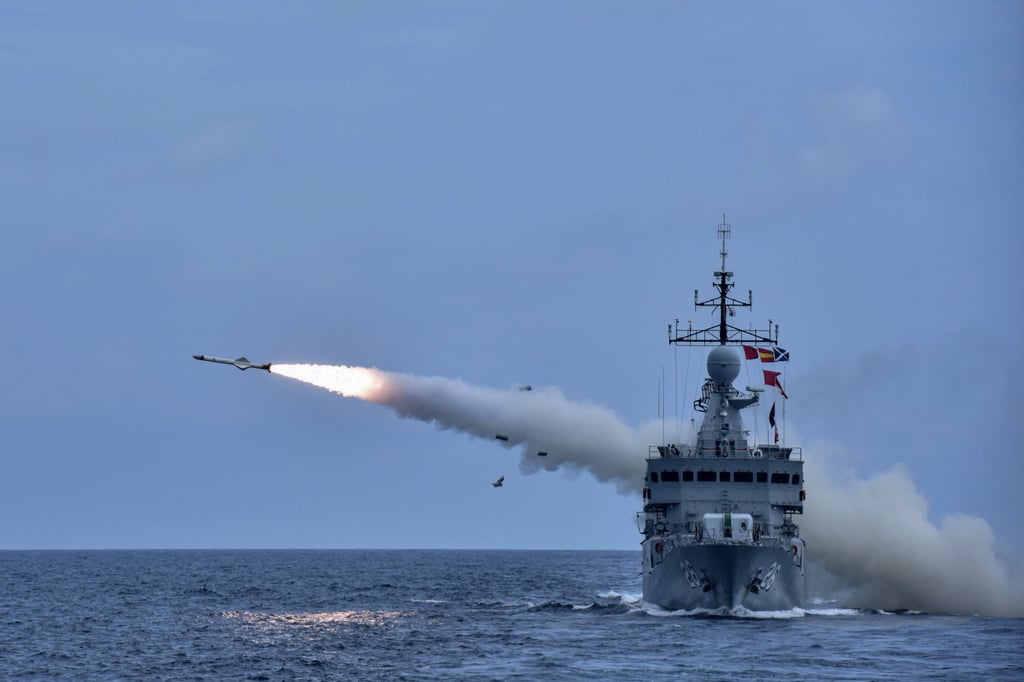Why Malaysia has stayed quiet but firm on South China Sea: ‘let sleeping dogs lie’

First, Malaysia seeks to steadfastly assert and defend the country’s territorial claims and sovereign rights inside its exclusive economic zone (EEZ).
Malaysia has deployed military personnel to the five atolls it occupies in the contested Spratly Islands, while the Malaysian navy and coastguard maintain a constant vigil in the country’s EEZ, monitoring, but not challenging, China’s activities. Since 2019, Malaysia has publicly rejected China’s nine-dash line claim, calling it “ridiculous”.
Second, Kuala Lumpur tries hard to decouple the dispute from the country’s vital economic ties with China, its largest trade partner and an important, if sometimes controversial, source of investment.
The third prong is to support the Asean-China conflict management process – that is, the ongoing negotiations for a Code of Conduct – and promote a peaceful resolution of the dispute through negotiations
Regarding the latter, Malaysia has consistently dangled the prospect of bilateral talks in front of China, possibly leading to the joint development of hydrocarbons. However, as Kuala Lumpur has exclusive rights to all living and non-living resources within its EEZ, it has never had any serious intention of discussing joint development with Beijing, let alone the sovereignty issue.

Since taking office in November 2022, Anwar’s government has adhered to this three-pronged policy.
The Anwar administration has not compromised Malaysia’s territorial claims or sovereign rights in the South China Sea. The state-owned energy company Petronas continues to drill for oil and gas in the country’s EEZ. On his return from China in April 2023, Anwar told parliament that while Beijing had raised “concerns” about Petronas’ activities, “Malaysia sees the area as Malaysian territory, therefore Petronas will continue its exploration activities there”.
When he added that Malaysia was “open to negotiations” with China, the opposition accused him of being “careless” in his remarks. But as noted earlier, a willingness to hold talks with China over the dispute is a long-standing position, and should be seen as more of a rhetorical device to string Beijing along than a serious commitment to dialogue.
Just in case there was any doubt regarding Malaysia’s position, within days of Anwar’s remarks, the foreign ministry quickly followed up with a statement asserting that the government was “unequivocally and firmly committed” to protecting the country’s sovereignty in the South China Sea. In August last year, China published a new map showing the nine-dash line, which Malaysia roundly rejected.
Nor is there any indication that the Malaysian navy or coastguard has reduced its presence in the country’s waters. Indeed, plans to build a new naval base at Bintulu in Sarawak, facing Petronas’ upstream projects, are proceeding on Anwar’s watch.
In accordance with the second prong, the Anwar administration continues to play down the dispute with China. In an interview in June, Anwar accused the West of exaggerating tensions in the South China Sea: “Do we have a problem [with China]? Yes. Have we encountered any serious clashes or problems? No.”
In another example, Nushirwan bin Zainal Abidin, the director general of the National Security Council, said in a recent media interview that while he would prefer Chinese ships not to loiter in Malaysian waters, their presence should not “colour” bilateral relations. “We can let sleeping dogs lie,” he said.
A statement by Foreign Minister Mohamad Hasan at the recent Asean Ministerial Meeting provoked consternation in some quarters when he said “issues” within the region should be resolved through dialogue among the countries themselves. His statement was accurate: the Code of Conduct is between Asean and China only, and a resolution to the dispute can be achieved only by the disputants themselves. Both China and Malaysia have long agreed on these two points.
To be sure, Malaysia has adopted a very different approach to the South China Sea dispute than either Vietnam or the Philippines, and sometimes it appears as if Kuala Lumpur is leaning towards Beijing’s position.
But the three-pronged policy allows Malaysia to maintain close ties with China while asserting its territorial claims and protecting its sovereign rights. Anwar understands this and will not deviate from it.
